Understanding Crypto Asset Security
Importance of Crypto Asset Security
Cryptocurrency’s climb up the popularity ladder means the need to keep your crypto safe is more important than ever. There’s no FDIC safety net if your chosen exchange crashes or a hacker makes off with your BTC. Kiss those funds goodbye because getting them back is like squeezing water from a stone (Security.org). With how crazy crypto prices can get, investing money you can afford to lose is vital. Unlike regular stocks and bonds, there’s no safety net from the government for crypto. Plus, regulation is still a work in progress, so it’s crucial to do your homework before jumping into the digital currency scene. It’s always better to be safe than sorry, right?
Risks Associated with Crypto Investments
When I first started dipping my toes into the world of crypto I was scared, especially after all the horror stories I heard. There are always so many risks lurking around, just waiting to catch you off guard. We can’t ignore the scams that are prevalent in the crypto space. The key is to remain vigilant and conduct thorough research on exchanges and wallets to protect your digital assets because you never know what the market will be like in the future.
Apart from scams, trading itself is also very risky. Remember what happened in 2023? Bitcoin pulled a magic trick by quadrupling its value, and Ethereum wasn’t far behind with its impressive jump. This can lead you to believe that if you just time the market well enough you can get rich. But don’t forget, those prices can drop faster than you can say “blockchain,” leaving your crypto wallet looking emptier than a broken vending machine.
So, with all these challenges out there, securing your crypto assets should be a top priority. Getting a handle on the risks and finding ways to protect your digital gold is the smart move!
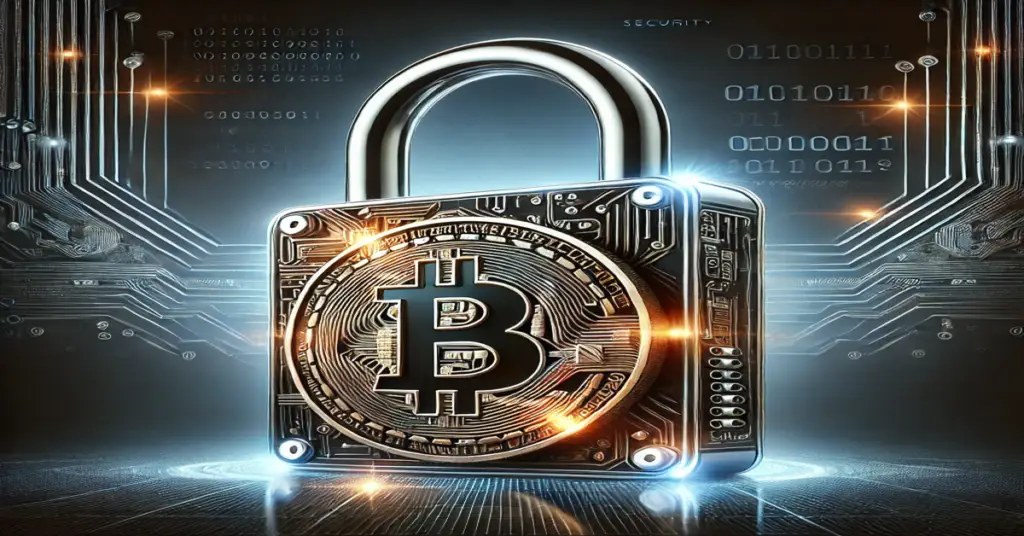
Securing Your Crypto Assets
Securing your crypto is vital for your investments. It can feel overwhelming at times, but choosing the right exchange, using personal wallets, and exploring different wallet types are essential steps. You’re not alone in wanting to safeguard your assets, and taking these precautions can help bring you peace of mind.
Choosing a Secure Exchange
Picking a trusted spot to trade your digital coins is the first step for your crypto safety net. Popular exchanges like Coinbase, Crypto.com, and Kraken are the go-to’s for their extra security features and investor protection (Security.org). Research a little deeper into these exchanges’ security features, two-factor authentication or 2FA, hoarding most of your assets offline with cold storage, and how well they play by the regulatory rulebook.
| Exchange | Security Features | Regulatory Compliance |
|---|---|---|
| Coinbase | 2FA, cold storage, insurance covered | Yes |
| Crypto.com | 2FA, crypto-insurance, cold storage | Yes |
| Kraken | 2FA, chilly storage, deep-dive security audits | Yes |
When you’re shopping for an exchange, make sure their security features match your comfort zone. Being cautious here isn’t being paranoid—it’s plain smart. Getting hacked is a badge no one wants.
Importance of Personal Wallets
When you’re just getting started and don’t have a lot of crypto, exchanges might be fine for quick trades, but they’re not a long-term solution for your crypto. If you’re thinking long-term, personal wallets are what you need. They help keep your private keys—your golden tickets—purely yours and offer you more command over your funds. They also help you dodge hassles from exchange mishaps and unwelcome online visitors. Try mixing up different wallet types to get the best of both worlds: security and ease. Having your own wallet lets you tuck away your ETH from prying eyes, reducing risks.
Types of Wallets for Crypto Security
Various wallets come loaded with different ways to keep your coins snug and secure:
- Hardware Wallets: Tools like Ledger and Trezor are your go-to for keeping your keys tucked away from the internet’s sticky fingers. They do their magic offline, so hackers don’t stand a chance (Investopedia).
- Paper Wallets: Here I’m talking about good old-fashioned paper notes. Just print your keys and QR codes safely. (Komodo Platform).
- Software Wallets: Easy to grab on your phone or computer and perfect for your everyday shuffles. Convenient, sure, but remember, with that constant online mingling, they don’t offer the same rock-solid security as hardware wallets.
Each wallet has its quirk, so it’s all about what suits you and your security goals. Mixing a bit of this and that can pretty much keep your digital fortune managed well. Check out more on crypto wallets to get more info. By nailing down these essentials—picking a trustworthy exchange, respecting the power of a personal wallet, and knowing your wallet types—any crypto buff can turn themselves into a digital guardian, keeping their assets safe and sound.

Private Keys and Security
Managing private keys is similar to safeguarding your life savings in a digital format. They’re as precious as your favorite baseball card collection or your grandma’s secret recipe. Protecting them from potential threats is crucial, and it’s completely understandable to feel the need to keep your crypto assets secure.
Role of Private Keys
Think of private keys as your combination to a safe that holds all your digital coins. They create little digital fingerprints that prove you’re the rightful owner, letting you make transactions that are all above board, without flashing the secret itself. Imagine shouting “I’m rich!” without thieves knowing where you hide your money. If you lose this key? Well, it could be like misplacing the only map to your treasure chest, with your coins stuck forever in the digital abyss.
| Key Aspect | Description |
|---|---|
| Access Control | Opens the door for you to deal with your fortune |
| Digital Signature | Gives you ownership without telling all |
| Loss Consequence | Waves goodbye to easy access to your funds if you misplace them |
Utilizing Hardware Wallets
Hardware wallets are like the vault equivalent for keeping your private keys tucked away from online pirates. They generate and stow away your keys without them gracing the internet, offering an increase in security layers. Why should you get a hardware wallet? Well, here’s a few reasons:
- Offline Storage: Keeps your precious keys offline and miles away from hackers lurking online.
- Transaction Security: Make sure your keys stay within the safe confines of the device, amping up protection against unwanted visitors.
- User-Friendly: These little gadgets usually come with easy-to-use platforms, making asset management smoother than butter.
Want more info on hardware wallets? Head over to our post on the best crypto wallets for beginners.
Secure Storage Methods for Private Keys
If hardware wallets help you stop sleeping with one eye open at night, imagine amping up protection even more. A variety of clever storage solutions exist to keep your keys secure. Here’s a taste of what you can try:
- Cold Storage Solutions: Paper wallets or special storage devices leave your keys in the digital dark ages.
- Multi-Signature Wallets: Team up with your friends on spending decisions, needing multiple OKs to move the funds. It’s like helming a pirate ship where all partners need to turn the wheel together.
- Encrypted USB Drives: Stash your keys onto an encrypted USB, adding another wall of defense against anyone looking to steal your BNB.
Securing your private keys is crucial for protecting your cryptocurrency. As technology advances, it’s essential to strengthen your security measures. By doing so, you can minimize risks in the volatile world of crypto investing.
Best Practices for Crypto Security
Keeping your digital cash safe is essential; no one wants their electronic piggy bank raided. Here are some smart tips to ensure your digital coins stay secure.
Backup Strategies for Wallets
It’s wise not to put all your eggs in one basket, especially when it comes to your cryptocurrency keys. Back them up as if they were your grandma’s secret cookie recipe. Store copies on USB drives, CDs, or external hard drives to safeguard against computer issues. Think of it like having a spare key, but much safer.
| Backup Method | Description |
|---|---|
| USB Drives | Handy, encrypted pocket rockets for your data. |
| CDs | Remember those things? They still work for safekeeping. |
| External Hard Drives | Big safes for holding numerous backup copies. |
Creating a backup routine might sound as thrilling as watching paint dry, but when you misplace your keys, you’ll be doing a happy dance. And if you’re nerdy about safekeeping, getting a backup cryptocurrency wallet is like having a lifeboat for your digital yacht.
Utilizing Security Features
Backing up isn’t the only trick in the book. Like any good investor, you’ve got to use all the tools at your disposal. Seed or recovery phrases are like secret charms that can bring your wallet back to life if things go south. And let’s not forget the golden rule: keep everything updated. Software updates might sound dull, but hackers hate them. Throw two-factor authentication into the mix, and you’re practically Fort Knox. Here are some things you need to look at:
| Security Feature | Purpose |
|---|---|
| Seed Phrases | Magic words that resurrect your wallet. |
| Two-Factor Authentication | Double-check that you’re you, not some sneaky imposter. |
| Regular Software Updates | Keeps the bugs and bad guys at bay. |
Balancing Hot and Cold Wallets
Balancing your crypto assets requires using both hot and cold wallets. Hot wallets offer convenience but pose higher risks, while cold wallets serve as secure, offline storage. Together, they help protect your digital funds.
| Wallet Type | Advantages | Disadvantages |
|---|---|---|
| Hot Wallets | Offers convenience and speedy transactions | Vulnerability to online threats |
| Cold Wallets | Boosts security by staying offline | Lacks the quick access of hot wallets |
By using hot wallets for quick spending and cold wallets for the long haul, you can ensure your assets are both accessible and safe. For a deeper dive into wallet types, head over to guides like secure bitcoin wallets, and mobile crypto wallets, or check out the best multi-currency crypto wallets.
Frequently Asked Questions
What is crypto asset security and why is it important?
Crypto asset security refers to the measures taken to protect cryptocurrencies from theft, loss, and unauthorized access. It’s crucial because, unlike traditional banking systems, cryptocurrencies are decentralized and often irreversible, meaning that once your assets are lost or stolen, they can be incredibly difficult to recover.
How can I enhance my crypto asset security?
You can enhance your crypto asset security by using hardware wallets, enabling two-factor authentication, regularly updating your software, and being cautious about sharing personal information. Educating yourself about phishing scams and avoiding public Wi-Fi for transactions also helps keep your assets safe.
What are the common threats to crypto asset security?
Common threats to crypto asset security include phishing attacks, malware, and hacking attempts on exchanges and wallets. Additionally, social engineering scams can trick users into revealing their private keys or passwords, compromising their assets.
Is it safe to store my crypto assets on an exchange?
While exchanges provide convenience for trading, storing your crypto assets there can be risky due to potential hacks. It’s safer to transfer your assets to a personal wallet, especially for long-term holding. Always choose reputable exchanges with strong security measures in place.


![[crypto asset security]](https://cryptohashira.com/wp-content/uploads/2024/11/1730320405711x482955841305053900-feature-750x375.webp)
![[secure bitcoin wallets]](https://cryptohashira.com/wp-content/uploads/2024/11/1730320405725x325769434323760060-feature-120x86.png)
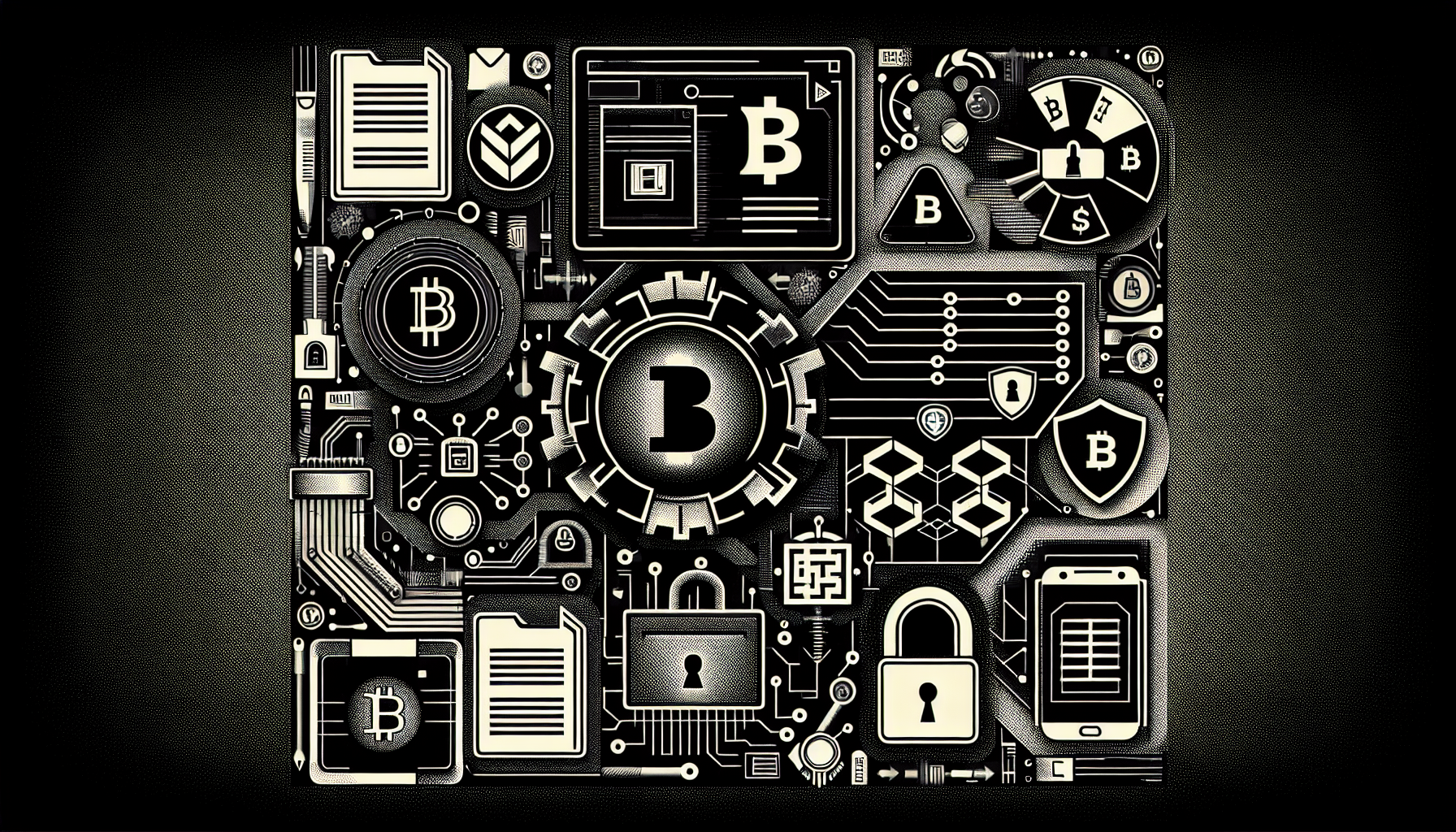

![[secure bitcoin wallets]](https://cryptohashira.com/wp-content/uploads/2024/11/1730320405725x325769434323760060-feature-350x250.png)
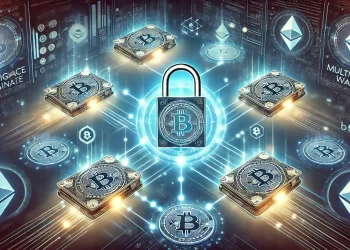
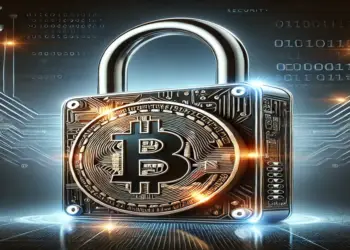






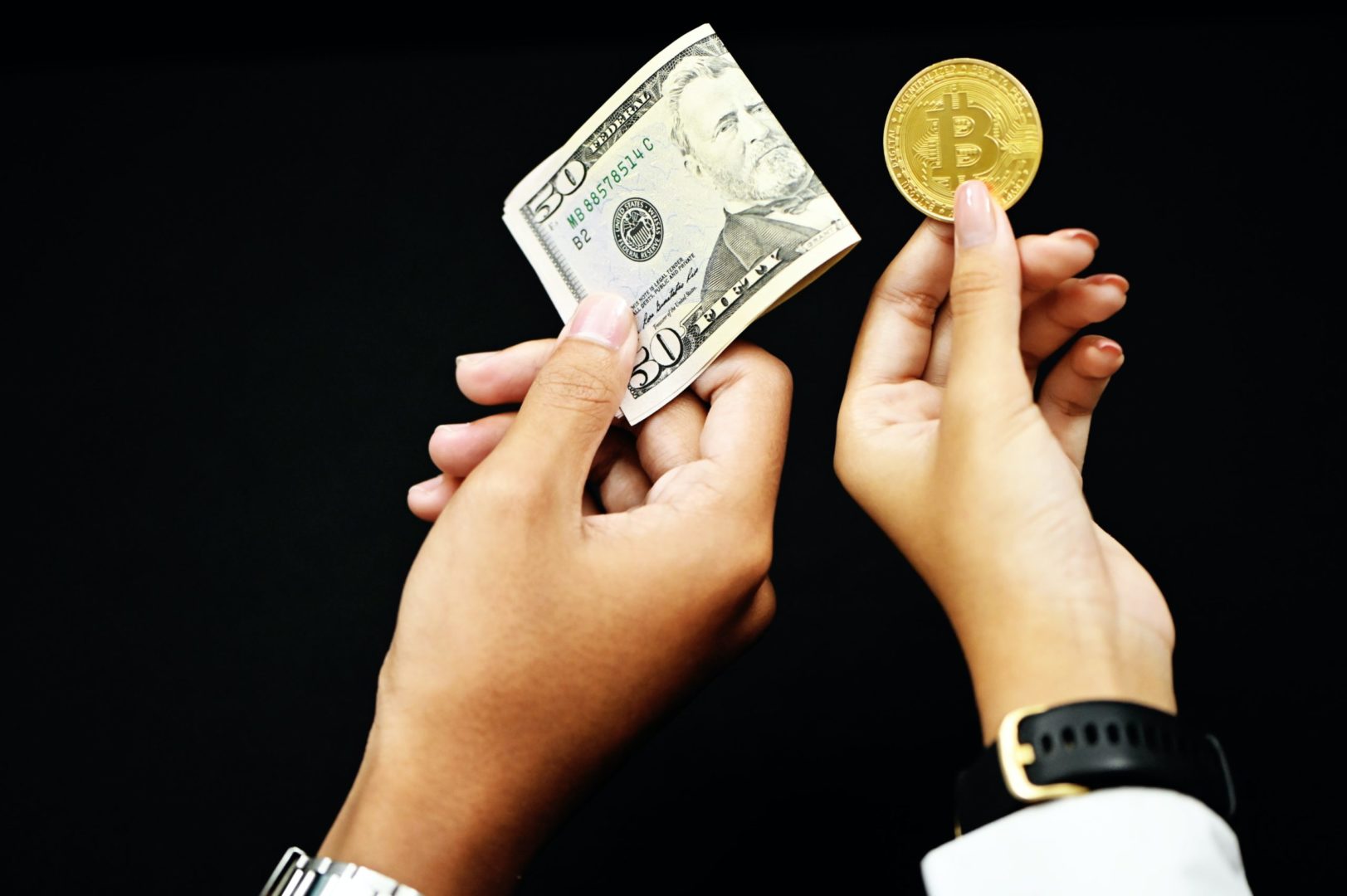

![[crypto asset security]](https://cryptohashira.com/wp-content/uploads/2024/11/1730320405711x482955841305053900-feature-120x86.webp)
